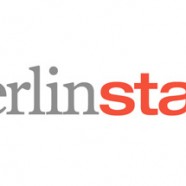Startup Lieferheld & Lukasz Gadowski
Lieferheld & Deliveryhero, big money.
EUR 15 Mio within the first 12 months, not bad.
Lukasz wants to share a few thoughts on financing with you.
There are a few things I am quite proud of in my entrepreneurial career. One of them is, to have bootstrapped spreadshirt. that is, it was launched without any financing. Not a single EUR was invested. We did not even pay fees to open a bank account – the first transfers have been on my private account. There was no invest in IT – my co-founder Matthias programmed everything himself. And I was living of state-walfare and student loans. That was back in 2002 – and just three years later we bootstrapped ourself to an international presence and a teamsize of 150 people. With an own office in the USA. There we have been one of the first clients of Facebook – buying ads with them to sell t-shirts. And enabling us to see the model early enough to co-found studiVZ for the German market with one of our spreadshirt interns. This intern does not like to have me as a co-founder. He thinks it diminishes his role and his overarching serial success – so, he rather calls me an investor. I invested 5K, and my co founder at spreadshirt another 5K. so, the start capital was 10K EUR. The entity was a UK limited – since back then a German limited liability entity (and when you launch a start up with one of your interns, you want to limit liability would have required 25 K – money we barely had in 2005. In fact, since I never payed myself salaries above the basic living expenses during my first years at spreadshirt, I got the 5K from my bank overdraft (paying 10% or so interest on it).
So, it is possible to start a business with very little and almost no money. Spreadshirt is just one example. StudiVZ was started with little, (although we ended up raising a few mio from the Samwers and Holtzbrinck before exiting 14 months after incorporation and 10 months after launch). Mymuesli was barely any money as well. Same for Gameforge. So, there are a lot of examples. They sound very romantic, the pure thing. But they are also childs of their time. Back in 2002 when spreadshirt was born, nobody would leave consulting or investment banking to “join the internet”. In 2005 nobody would “kill” a field with a lot of financing – simply because there was none available. And that which was available, was very little and mattered much less then execution – at spreadshirt for example we had two competitors, eQuisto and ePresso, both financed with round about half a million each. Both did not survive. Also StudiVZ whch was launched for 10K had a 500K competitor – called “Studylounge”, but nobody remembers it, since it did not survive the first 12 months.
I’m not saying it’s not possible to bootstrap today. It is, and we will see more examples in the future. But for some models it got less likely to bootstrap – times changed. My first experience of the power of capital was brands4friends. we raised a Million just on powerpoint and barely incorporated, followed by another 5 just barely after launch. Together with the distribution deal we had arranged with studiVZ, this enabled us to outcompete allegedly strong existing players (in that case – samwer backed – buyvip which was in germany earlier and larger).
The latest example everybody will be familiar with is groupon. In principle, it is a model that would allow for bootstrapping. But once somebody comes in with a lot of capital, he will suffocate the bootsies. as happend in Germany with approximately 20 – 30 clones dying in the first year, while the two best financed – cidydeal and dailydeal – survived and made it to start up textbook glory.
sweet capital, cash, money.
Tell me about your great overarching execution skills, when you have EUR 50 mio at hand. Of course fundraising is an important part of execution – but I guess 50 Mio makes live a lot easier for a start up…
Seriously, above a certain trashold a good capitalzation becomes a self fullfilling prophecy and is a major success factor for a start up. And no matter if the business model is proven or not. Capital helps in both cases – for proven models probably even more. A good capitalization allows for focus (fund raising eats a lot of management time) and speed (obvious). It also allows for one or the other mistake – increases your margin of error. And anybody who tells you he never does any mistakes (all the more under severe time and other preassure) is a lier. But obviously increasing margin of error does not mean, that one can spend capital foolishly. The execution skills need to be above average, otherwiese the cash will quickly evaporate and it becomes a curse – a start up that is scaling before it knows what to scale, makes mistakes while on very high speed – and forces it selef into continuous fundriasing.
Anyway, in the right space – esp. when it comes to execution businesses – capital allows to create a lot of value very quickly. The Samwer brothers are the best example for that – see citydeal which allgedly had EUR 50 Mio in the first year, or Zalando, which raised undiclosed amounts which are celarly north of EUR 100 Mio.
Keep goin, Lukasz.







Ah, super, da haben die wohl nach der Sendung aufger stet. Schau mir den Beitrag gecilh mal komplett an, wenn ich den Real Player installiert bekomme. :-S
sure